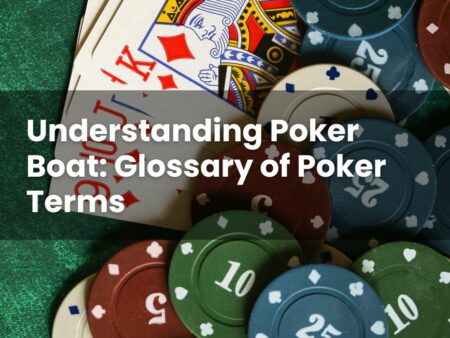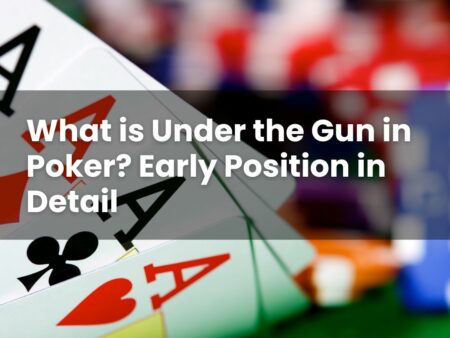If you have ever watched a game of roulette, you may have heard people mention “hot” or “cold” numbers. These terms can pop up often online and in casinos, but their meaning is not always clear to those new to the game.
This guide explains what hot and cold numbers really are, how they are identified, and why some players talk about them. You will also learn how these stats may appear at both land-based and online tables, and what they can and cannot tell you before you play.
What Do Hot and Cold Numbers Mean in Roulette?
In roulette, “hot numbers” are those that have appeared more often than others in a recent stretch of spins. “Cold numbers” are the opposite; they have shown up less often, or not at all, over the same period.
These labels usually come from short-term “patterns”. On a European roulette wheel with 37 pockets (1 to 36 plus a single zero), some players might look back over, say, the last 50 or 100 spins and note which numbers have landed more or less frequently during that window.
Many tables display this history on-screen or on an electronic board. It is there to show what has happened so far, not to guide what will happen next. Each spin is independent and random. The belief that a number is “due” because it has not appeared for a while is known as the gambler’s fallacy. Past results do not change the chance of the next outcome.
With that in mind, it may help to know how these lists are actually put together.
How Are Hot and Cold Numbers Determined?
Hot and cold numbers are worked out by counting how often each number has landed within a chosen recent range of spins. The range might be the last 20, 50 or 100 results. A number that appears more than most in that window is tagged “hot”. One that appears rarely, or not at all, is tagged “cold”.
For example, over 100 spins on a European wheel, any single number would be expected to show roughly 1 in 37 times on average. If 7 appears eight times within that snapshot, while many others appear two or three times, some displays will list 7 as hot and the lower-frequency numbers as cold. Over a different 100-spin window, those labels can change again.
These categories are a simple description of recent history. As noted earlier, they do not influence future results. The wheel or Random Number Generator (RNG) treats every spin as a new event with the same probabilities as the last.
Curious where to find these stats when you play?
Can You Track Hot and Cold Numbers in Live and Online Roulette?
Most online roulette games, including live dealer tables, show a panel with recent outcomes. This often includes a list or chart of hot and cold numbers that updates after each spin, sometimes with options to view longer histories, such as the last 100 or 500 results. It is a quick way to see any potential patterns from your current session without keeping notes.
In a physical casino, you may see an electronic display beside the table showing the latest winning numbers. Some players use this to follow trends by eye, or to track a few favourites during their visit.
These tools are for reference only. They present what has already happened at that table. As explained earlier, they do not provide a way to forecast the next spin, whether you are playing online with an RNG or at a live wheel.
Seeing the numbers is one thing; deciding how much weight to give them is another.
Are Hot and Cold Numbers Reliable in Roulette?
Hot and cold numbers can be interesting, but they are not a method for predicting outcomes.
Roulette results are random, and each spin starts with the same probabilities as the last. Even if 23 has appeared several times in quick succession, its chance of appearing on the next spin does not change.
The idea that streaks will continue, or that a dry spell must end soon is a version of the gambler’s fallacy mentioned earlier. In regulated online games, independent testing ensures the RNG produces fair, random results. In live settings, well-maintained equipment is designed to avoid bias, so that no number gains an ongoing edge.
This gap between what looks meaningful and what actually matters gives rise to a few myths.
Hot Cold Roulette Numbers Myths Explained
There are several common myths about hot and cold numbers in roulette. Here are three that can often cause confusion:
Myth 1: Hot numbers are more likely to come up next.
The wheel or RNG does not track streaks. A number that has appeared frequently in recent spins is no more likely to land on the next spin than any other.
Myth 2: Cold numbers are “due” to appear.
A number can avoid appearing for many spins without changing its odds on the next one. Each outcome is independent, so long gaps do not create a higher chance that a specific result will follow.
Myth 3: Tracking hot and cold numbers can help “beat the house.”
No approach based on recent history removes the built-in house edge. These displays summarise past results and do not confer an advantage.
Roulette can be enjoyable, but it is important to set limits and only stake amounts you can afford to lose. Treat hot and cold numbers as optional background info, rather than a guide to decisions, and you will have a clearer view of what the game is showing you. Always play responsibly.








